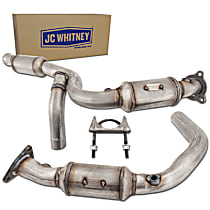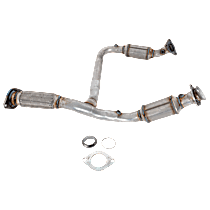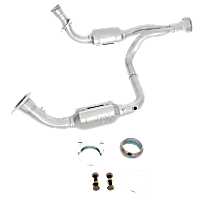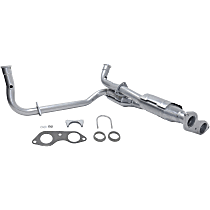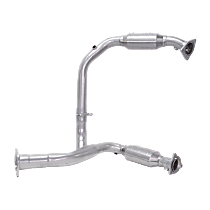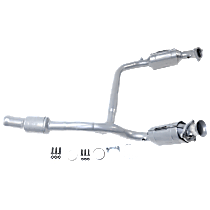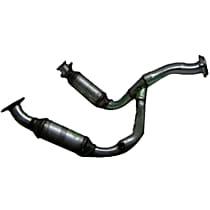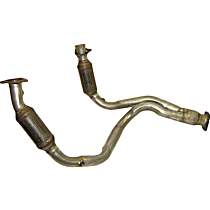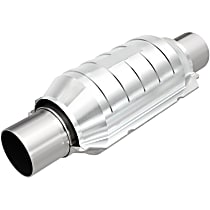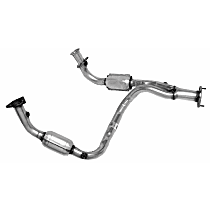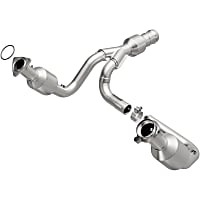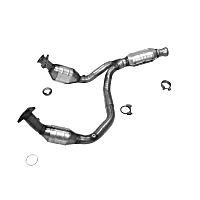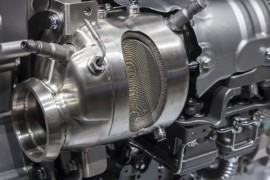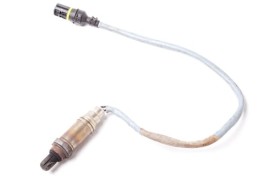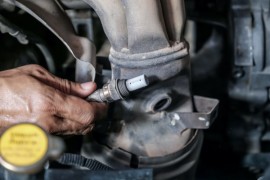{
"lazyNodes": false,
"abFitnotesFlag": false,
"abCrawlReviews": false,
"productOptionsCookie": false,
"orderDelayFlag": false,
"skipSessionCookie": false,
"covidMessage": false,
"fullTitleCookie": false,
"nrLoggerCookie": false,
"checkoutReviewCookie": false,
"productOptionSeqCookie": false,
"maintenanceFlag": false,
"bufferETACookie": false,
"multiShippingDiscountFlag": false,
"newFitmentFlag": false,
"surveyOptInFlag": false,
"crossSellFlag": false,
"skuMappingFlag": false,
"paySplitCookie": false,
"callDisableFlag": false,
"zipPaymentFlag": "u",
"hassleFreeReturn": false,
"lifetimeReplacement": false,
"cpn_off": false
}Chevrolet Tahoe Catalytic Converters
Shop Catalog
![]() WARNING: This product can expose you to chemical which is known to the State of California to cause cancer and birth defects or other reproductive harm. For more information go to www.P65Warnings.ca.gov.
WARNING: This product can expose you to chemical which is known to the State of California to cause cancer and birth defects or other reproductive harm. For more information go to www.P65Warnings.ca.gov.
![]() WARNING: This product can expose you to chemical which is known to the State of California to cause cancer and birth defects or other reproductive harm. For more information go to www.P65Warnings.ca.gov.
WARNING: This product can expose you to chemical which is known to the State of California to cause cancer and birth defects or other reproductive harm. For more information go to www.P65Warnings.ca.gov.
![]() WARNING: This product can expose you to chemical which is known to the State of California to cause cancer and birth defects or other reproductive harm. For more information go to www.P65Warnings.ca.gov.
WARNING: This product can expose you to chemical which is known to the State of California to cause cancer and birth defects or other reproductive harm. For more information go to www.P65Warnings.ca.gov.
![]() WARNING: This product can expose you to chemical which is known to the State of California to cause cancer and birth defects or other reproductive harm. For more information go to www.P65Warnings.ca.gov.
WARNING: This product can expose you to chemical which is known to the State of California to cause cancer and birth defects or other reproductive harm. For more information go to www.P65Warnings.ca.gov.
![]() WARNING: This product can expose you to chemical which is known to the State of California to cause cancer and birth defects or other reproductive harm. For more information go to www.P65Warnings.ca.gov.
WARNING: This product can expose you to chemical which is known to the State of California to cause cancer and birth defects or other reproductive harm. For more information go to www.P65Warnings.ca.gov.
![]() WARNING: This product can expose you to chemical which is known to the State of California to cause cancer and birth defects or other reproductive harm. For more information go to www.P65Warnings.ca.gov.
WARNING: This product can expose you to chemical which is known to the State of California to cause cancer and birth defects or other reproductive harm. For more information go to www.P65Warnings.ca.gov.
![]() WARNING: This product can expose you to chemical which is known to the State of California to cause cancer and birth defects or other reproductive harm. For more information go to www.P65Warnings.ca.gov.
WARNING: This product can expose you to chemical which is known to the State of California to cause cancer and birth defects or other reproductive harm. For more information go to www.P65Warnings.ca.gov.
![]() WARNING: This product can expose you to chemical which is known to the State of California to cause cancer and birth defects or other reproductive harm. For more information go to www.P65Warnings.ca.gov.
WARNING: This product can expose you to chemical which is known to the State of California to cause cancer and birth defects or other reproductive harm. For more information go to www.P65Warnings.ca.gov.
![]() WARNING: This product can expose you to chemical which is known to the State of California to cause cancer and birth defects or other reproductive harm. For more information go to www.P65Warnings.ca.gov.
WARNING: This product can expose you to chemical which is known to the State of California to cause cancer and birth defects or other reproductive harm. For more information go to www.P65Warnings.ca.gov.
![]() WARNING: This product can expose you to chemical which is known to the State of California to cause cancer and birth defects or other reproductive harm. For more information go to www.P65Warnings.ca.gov.
WARNING: This product can expose you to chemical which is known to the State of California to cause cancer and birth defects or other reproductive harm. For more information go to www.P65Warnings.ca.gov.
![]() WARNING: This product can expose you to chemical which is known to the State of California to cause cancer and birth defects or other reproductive harm. For more information go to www.P65Warnings.ca.gov.
WARNING: This product can expose you to chemical which is known to the State of California to cause cancer and birth defects or other reproductive harm. For more information go to www.P65Warnings.ca.gov.
![]() WARNING: This product can expose you to chemical which is known to the State of California to cause cancer and birth defects or other reproductive harm. For more information go to www.P65Warnings.ca.gov.
WARNING: This product can expose you to chemical which is known to the State of California to cause cancer and birth defects or other reproductive harm. For more information go to www.P65Warnings.ca.gov.
![]() WARNING: This product can expose you to chemical which is known to the State of California to cause cancer and birth defects or other reproductive harm. For more information go to www.P65Warnings.ca.gov.
WARNING: This product can expose you to chemical which is known to the State of California to cause cancer and birth defects or other reproductive harm. For more information go to www.P65Warnings.ca.gov.
![]() WARNING: This product can expose you to chemical which is known to the State of California to cause cancer and birth defects or other reproductive harm. For more information go to www.P65Warnings.ca.gov.
WARNING: This product can expose you to chemical which is known to the State of California to cause cancer and birth defects or other reproductive harm. For more information go to www.P65Warnings.ca.gov.
![]() WARNING: This product can expose you to chemical which is known to the State of California to cause cancer and birth defects or other reproductive harm. For more information go to www.P65Warnings.ca.gov.
WARNING: This product can expose you to chemical which is known to the State of California to cause cancer and birth defects or other reproductive harm. For more information go to www.P65Warnings.ca.gov.
Top Rated Products
Product Questions & Answers
Customer Guides
Tips to Keep the Best Working Condition of Your Chevrolet Tahoe Catalytic Converter
The Chevrolet Tahoe won't be one of the world's best-selling, full-size SUVs for nothing. This vehicle is made with handsome looks and loaded with power full capability to accomplish just about anything. Since it's expected to deliver maximum efficiency, the Chevy Tahoe is fitted with high-quality exhaust system to help with achieve proper fuel and exhaust flow. An essential part of this system is your catalytic converter. It is responsible for letting the exhaust gases exit your vehicle as less-harmful substances than they are when they just come out of the engine. Thus, you must always prevent this component from being damaged. Here are some Chevrolet Tahoe catalytic converter maintenance tips that can help you:
- Inspect your catalytic converter to diagnose and prevent possible problems.
You can maintain the optimum condition of your catalytic converter through inspecting it for you to know any possible problem. Consult your manual for some ways on how to check your catalytic converter. For instance, if you shake it and you hear a rattling sound, it's possible that it is now filled up with debris. The recommended solution for this is air and high pressure washing, which is done by washing the inlet and outlet pipes of your cat con.
- Follow the scheduled tune-ups for your vehicle.
Your catalytic converter can clog up because of excess hydrocarbons that get into its internal honeycomb system. These hydrocarbons can cause engine cylinders to misfire, thus preventing your engine from functioning properly. To avoid this situation, you must follow the scheduled tune-ups of your ride. This can involve heating up the cylinders and spark plugs of your catalytic converter to burn and eliminate unburned fuel deposits.
- Mind your driving habits.
Your catalytic converter needs appropriate amount of heat in order to function properly. Thus, it is best to take note of your driving practices to keep this component in top condition. It is preferable to drive at highway speeds regularly especially in cold season. This is because short and idle drives can cause fuel build up in your catalytic converter, which can lead to premature failing.
Summary
- Your Chevrolet Tahoe catalytic converter is an emissions control device that’s responsible for converting the exhaust system’s hazardous fumes into less harmful substances before they’re released into the environment.
- The symptoms of a bad catalytic converter include rattling noise, foul odor, illuminated Check Engine light, increased emissions, engine misfires, reduced engine performance, and loss of power.
- You need to immediately replace a damaged catalytic converter because it’s against the clean-air law to drive a vehicle without a properly working catcon.
- Replacement catalytic converters are rather expensive. On average, a replacement catcon assembly may set you back anywhere between $600 and $2000.
Tall and boxy, your Chevrolet Tahoe is as tough as it looks. It has earned the reputation of a dependable and comfortable workhorse that’s capable of hauling heavy loads, hence it’s often used for transporting large cargo and towing trailers, boats, and campers. Despite its durability, your SUV is still bound to experience issues every once in a while. One of the Chevrolet Tahoe parts that may be damaged is the catalytic converter.
Your Chevrolet Tahoe catalytic converter is an emissions control device that’s responsible for converting the exhaust system’s hazardous fumes into less harmful substances before they’re released into the environment. While it’s supposedly designed to last the lifetime of your vehicle, there are instances wherein the catalytic converter fails and may need to be replaced.
Bad catalytic converter symptoms
A damaged catalytic converter can lead to major vehicular problems, so it’s important to recognize the following warning signs of a failing catcon right away.
Rattling noise
Inside the catalytic converter is a catalyst-coated honeycomb structure that may be shattered when the catcon is subjected to external impacts while you’re driving. These broken pieces of the honeycomb are the sources of the rattling noise that you may hear when starting the vehicle.
Foul odor
If your Chevy Tahoe is emitting a foul odor that’s similar to the smell of rotten eggs, then it’s highly likely the catalytic converter is no longer converting the hydrogen sulfide from the exhaust emission into an odorless sulfur dioxide. This problem occurs when the fuel mixture is too rich, which may cause the catcon to overheat and fail.
Illuminated Check Engine light
If the oxygen or air-fuel ratio sensors in your vehicle detect that there’s something wrong with the performance of the catcon, it will trigger the Check Engine light to notify you of the potential issue. However, there are many other reasons why a Check Engine light may come on. If you get this warning, have your vehicle scanned to determine if it’s really caused by the catalytic converter.
Increased emissions
Without a working catalytic converter, your Chevy Tahoe will produce excessive amounts of exhaust emissions that are harmful not only to the environment but also to your health. Your vehicle will not pass the emission test when this is detected.
Engine misfires
This problem occurs when the catalytic converter is contaminated by unburned fuel from the engine, causing its components to melt down and clog the catcon. This consequently blocks the proper flow of exhaust gases and results in engine misfires.
Reduced engine performance
When a clogged catalytic converter blocks the outflow of exhaust gases, it creates back pressure and prevents the engine from “breathing.” Your engine may stall or your vehicle may jerk while driving. It may also seem as if fuel is not reaching the engine whenever you step on the accelerator.
Loss of power
A clogged catalytic converter may cause your SUV to lose power whenever it’s accelerating, pulling a heavy load, or climbing uphill.
Why is it necessary to replace a faulty Chevrolet Tahoe catalytic converter?
Besides preventing poor engine performance, another important reason why you need to immediately replace a damaged catalytic converter is because it’s against the clean-air law to drive a vehicle without a properly working catcon and doing so could get your license revoked. Continuing to drive without addressing a bad catalytic converter may also put your Chevy Tahoe at risk of total engine failure.
How much does a Chevrolet Tahoe catalytic converter replacement cost?
Replacement catalytic converters are expensive. Their price may vary depending on the brand, the location they’re designed to fit into, and the state requirements that they meet. On average, a replacement catcon assembly may set you back anywhere between $600 and $2000.
CarParts.com offers both OE and performance replacement catalytic converters. They’re sold individually, as part of an assembly or kit, or in sets of 2, 3, or 4. They’re available in universal and semi-universal fit, but you may also opt to get a direct fit when you enter your vehicle’s make, model, and year.
From the name itself, the catalytic converter converts harmful gases in its system into less harmful substances before they get released into the atmosphere. A failing catalytic converter can hamper the smooth functioning of your engine. So if you suspect problems with this component, here are the common signs you must look for:
Stalling vehicle instead of accelerating
If your vehicle jerks or stammers even though you step on the accelerator pedal, that is an indication of a clogged catalytic converter. Excessive rich fuel can enter the interior honeycomb system of your catalytic converter, which can result in overheating. If the system exceeds its normal operating temperature, it can have an air lock. This is the situation in which the exhaust cannot exit your engine. Because of the fuel build up, your catalytic converter can have an increased back pressure brought by the excessive mixture of raw and exhaust gases. As a result, your vehicle will not be able to accelerate. Instead, it will stall upon stepping on the pedal.
Decrease in fuel economy accompanied by a whistling noise
A clogged catalytic converter can also result in an evident decrease in fuel economy whenever you step on the accelerator pedal. This is also accompanied by a whistling noise that you can hear brought by the restrained force of your catalytic converter to let the exhaust flow out of the system. Because of this force, your engine will tend to consume more fuel even though your vehicle gives no extra power.
Foul smell similar to rotten eggs
If your catalytic converter is malfunctioning due to clogging and overheating, its filtering layers can be damaged and worn out. As a result, it will not be able to convert gases into less harmful substances. For instance, hydrogen sulfide will not be converted into sulfur. Thus, the foul odor of the said compound mixed with other excessive fuels can be smelled on your vehicle. You can confirm that the odor is coming from the failing catalytic converter because the odor is similar to rotten eggs.
